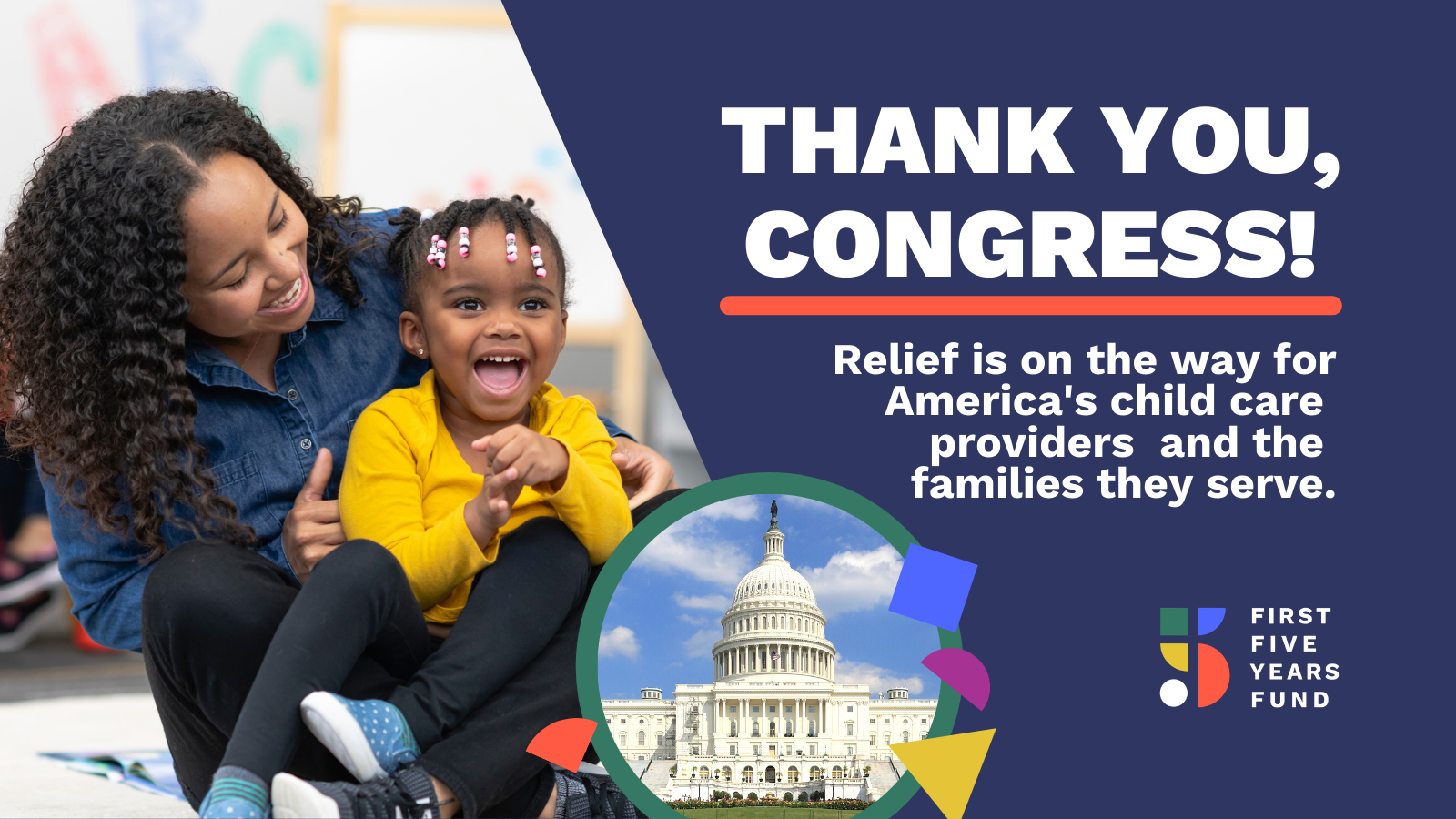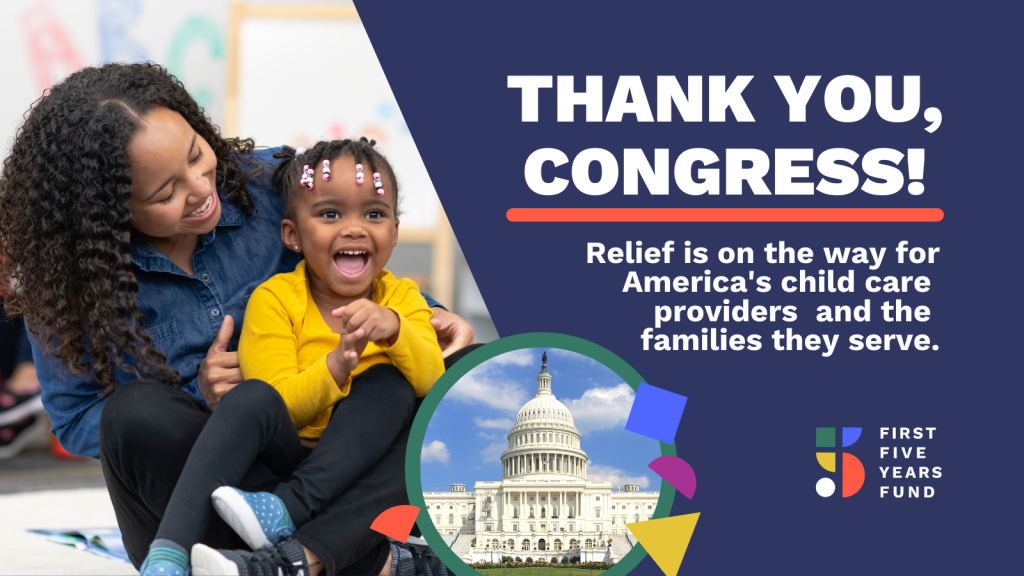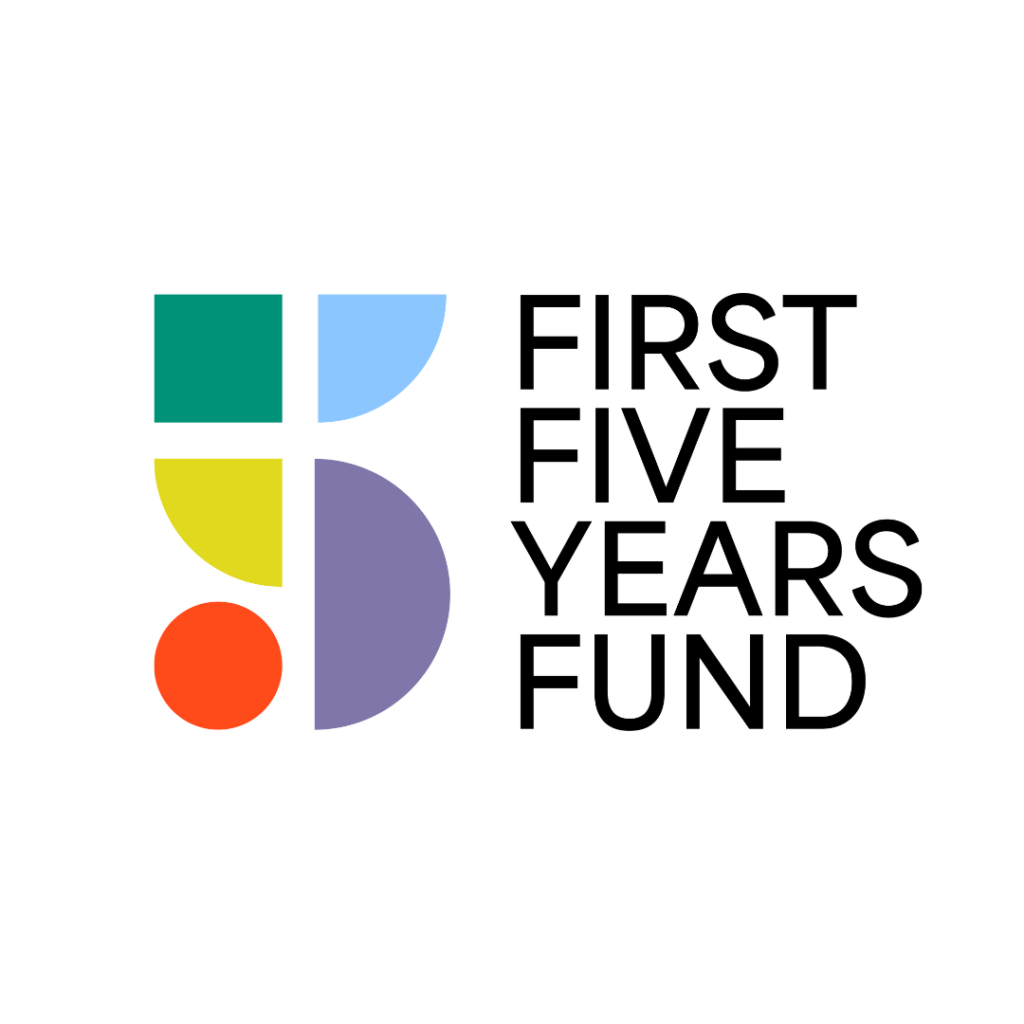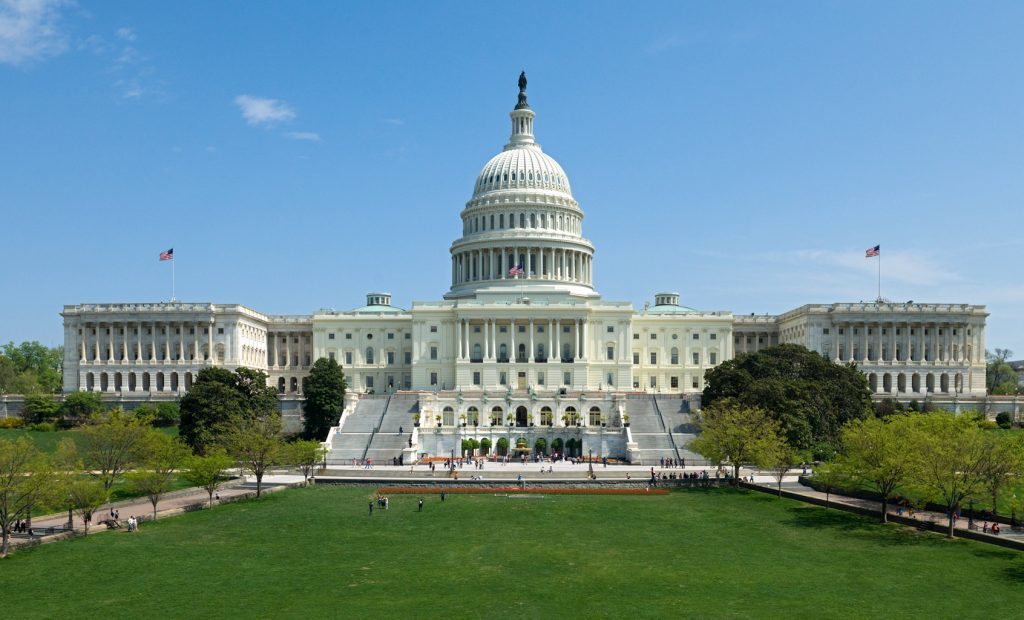Congress Passes American Rescue Plan with $39 Billion in Child Care Relief


UPDATE: On March 11, 2021, President Joe Biden signed the American Rescue Plan into law.
WASHINGTON – Moments ago, the House voted to pass the American Rescue Plan after it was amended and passed by the Senate over the weekend. The sweeping pandemic relief package includes $39 billion in child care relief funding: $15 billion in emergency funding for the Child Care and Development Block Grant (CCDBG) program and $24 billion for a child care stabilization fund. The bill will now go to President Biden to be signed into law.
“With the final passage of the American Rescue Plan, child care providers and the families they serve will finally receive the relief they desperately need as they continue to struggle with the effects of the COVID-19 pandemic,” said First Five Years Fund (FFYF) Executive Director Sarah Rittling. “This relief would not have been possible without the committed leadership of child care and early learning champions on Capitol Hill and the years of bipartisan efforts on behalf of America’s youngest learners. Now, with this crucial child care relief secured, and as lawmakers begin looking for ways to support America’s economic recovery, there can be no doubt that Congress should address the longstanding child care challenges facing families and the early educators they rely on.”
In addition to the $39 billion in dedicated relief for child care, the package includes $1 billion for Head Start programs and other measures directed at families with young children. See an overview of the elements included to support families with young children and the early learning programs they rely on below or online here.
Democrats and Republicans on Capitol Hill have included dedicated relief for child care in every COVID relief proposal since the beginning of the pandemic. Last fall, the House passed a bipartisan relief package with $50 billion for child care, and the Senate Republicans released a number of proposals with $15 billion for child care, leading Congress to ultimately pass legislation with $10 billion in December to keep child care providers afloat for roughly three months.
Meanwhile, the child care industry has lost approximately 171,000 jobs between February 2020 and December 2020 that have not been recovered, and surveys show that one in four child care centers and one in three family child care homes believe they will have to close permanently if no additional support comes forward. 46% of parents say their current child care situation isn’t sustainable in the long-term.
Beyond stabilizing the child care industry amid the ongoing pandemic and economic crisis, Congress should consider the ways in which it might take steps to strengthen and expand early learning and care opportunities for America’s working families. Earlier this year, FFYF released its Blueprint for Progress, offering Congress and the Biden administration insight into opportunities, big and small, to support early learning and care programs for children from birth through age five. The sweeping resource provides a true blueprint for lawmakers with policy proposals to address access, affordability, and quality in child care and early learning, outlining wide-ranging solutions that fit squarely into the various legislative vehicles Congress might pursue, from infrastructure, to tax reform, to annual funding bills, to budget reconciliation, and more. The Blueprint is online at FFYF.org/Blueprint.
Here’s an overview of the provisions of the American Rescue Plan supporting child care providers and the families they serve:
- Provides $14,990,000,000 in emergency relief to states through the Child Care and Development Block Grant (CCDBG) program.
- Provides $23,975,000,000 in emergency relief to states through child care stabilization grants to be allocated pursuant to the CCDBG Act.
- Increases annual mandatory funding for the Child Care Entitlement to States (CCES) of $633 million. Additionally, waives the required state match on new funding for FY2021 and 2022.
- For 2021, makes the Child Tax Credit (CTC) fully refundable; increases the amount to $3,000 for children ages 6-17 and to $3,600 for a child under age 6. The credit plateaus at $2,000, and then phases out. Issue monthly advance payments of the CTC that begin July 1, 2021.
- For 2021, makes the Child and Dependent Care Tax Credit (CDCTC) fully refundable; increases the maximum credit rate to 50%; increases the phaseout threshold from $15,000 to $125,000; increases the amount of eligible expenses to $8,000 for one qualifying individual. Adds a phaseout for taxpayers with Adjusted Gross Income in excess of $400,000.
- Provides $250 million for Part C of the Individuals with Disabilities Education Act (IDEA), which authorizes federal funding for early intervention services to infants and toddlers with disabilities ages birth to three years, and $200 million for Part B, Sec. 619, which authorizes supplementary grants to states for preschool programs serving children with disabilities ages three through five.
- Provides $150 million for the Maternal, Infant, and Early Childhood Home Visiting (MIECHV) program to remain available through the end of FY2022.
The First Five Years Fund is the leading bipartisan federal advocacy organization working to ensure all children from birth through age five have equal access to affordable, comprehensive, high-quality care and education to support their healthy development and help them achieve their full potential in school and life. FFYF seeks to expand federal support for all early learning and care opportunities that are high-quality and focused first on serving those children most-at-risk. http://www.ffyf.org
###
Subscribe to FFYF First Look
Every morning, FFYF reports on the latest child care & early learning news from across the country. Subscribe and take 5 minutes to know what's happening in early childhood education.



